Feeling stuck in a creative rut, or simply bored and looking for new and exciting ways to express yourself through the medium of paint? The collection below will help. I have compiled a fantastic collection of diverse creative painting ideas to ignite your imagination and banish boredom. You can use these ideas yourself, with your kids, and for fellow educators, they can use them with students in class to unleash their creative gene.
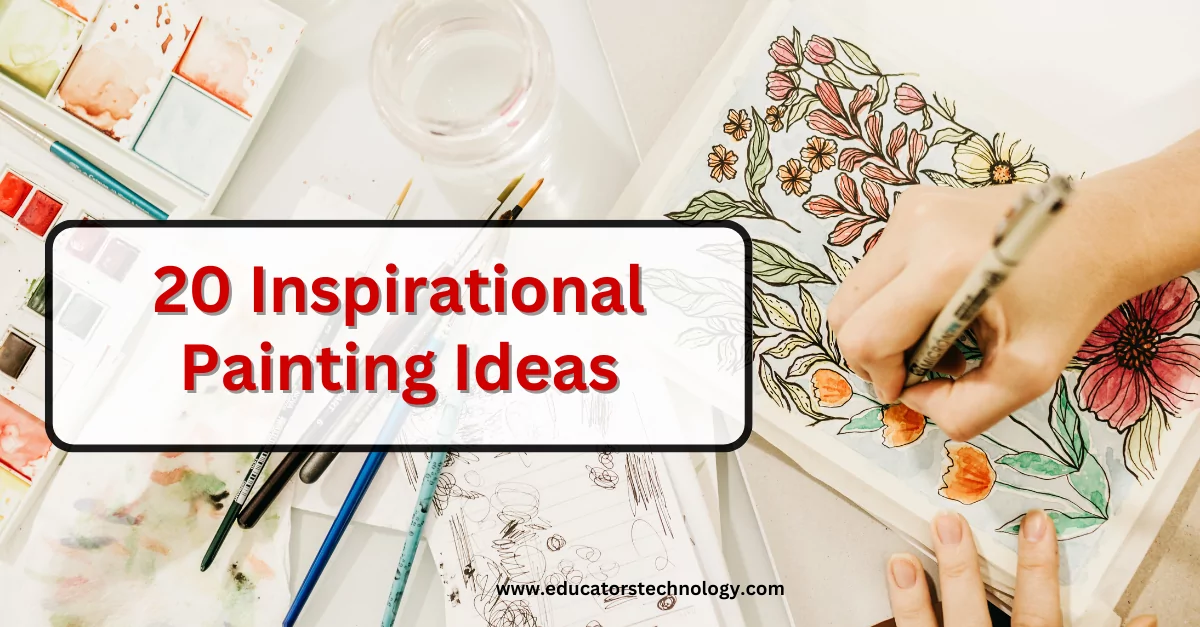
From abstract landscapes and mythical creatures to cultural celebrations and cosmic scenes, the list of inspiring themes and styles caters to artists of all skill levels and interests. Each idea is accompanied by a brief description and example to help you visualize the possibilities.
So grab your brushes, prepare your canvas, and embark on a thrilling artistic adventure as you explore the limitless world of painting! If you are looking for drawing ideas, check out this post featuring a wide variety of inspirational drawing and doodling ideas to choose from.
Benefits of painting
Painting has numerous benefits both for the mind and the body. Some of these include:
1. Stress Relief: Engaging in creative activities like painting can help reduce stress and anxiety by allowing you to focus on the present moment and express your emotions.
2. Improved Creativity: Painting encourages you to think outside the box and experiment with new ideas, techniques, and styles, which can enhance your overall creative abilities.
3. Enhanced Fine Motor Skills: The physical act of painting requires precise hand-eye coordination and muscle control, helping to improve your fine motor skills over time.
4. Boosted Self-Esteem: Completing a painting can provide a sense of accomplishment and pride, which can positively impact your self-esteem and confidence.
5. Emotional Expression: Painting serves as an outlet for expressing complex emotions and thoughts, which can be therapeutic and contribute to emotional well-being.
6. Increased Observational Skills: Painting often requires careful observation of the subject matter, which can improve your attention to detail and ability to notice subtle nuances in color, texture, and light.
7. Expanded Cultural Awareness: Studying and replicating various art styles and techniques from different cultures can broaden your understanding of the world and foster appreciation for diverse perspectives.
8. Social Connection: Participating in painting classes, workshops, or art communities can help you connect with like-minded individuals, building friendships and support social networks.
9. Cognitive Development: Painting engages multiple areas of the brain, including memory, problem-solving, and critical thinking, which can contribute to overall cognitive development.
10. Mindfulness and Meditation: Painting can serve as a form of meditation, allowing you to immerse yourself in the creative process and achieve a state of mindfulness and inner peace.
Here are some inspirational painting ideas
1. Abstract Landscapes
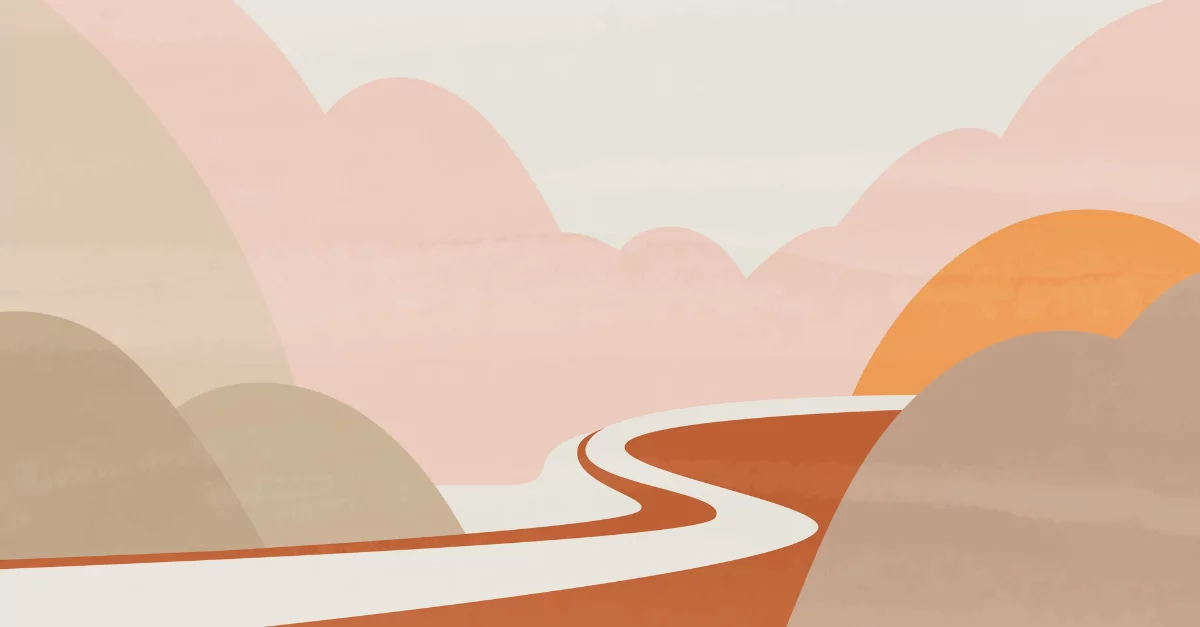
Create a series of abstract landscapes inspired by your favorite places. Think about the colors, shapes, and textures that define these locations, and use them to make abstract representations. Example: a warm, sandy beach with rolling waves in bold, swirling colors.
2. Portraits with a Twist
Paint portraits of friends or family members, but incorporate surreal or fantastical elements. Example: a portrait of your sister with butterfly wings sprouting from her back.
3. Upside-Down Painting

Challenge your perception by painting your subject upside down. This forces you to focus on shapes and colors rather than the subject’s identity. Example: an upside-down still life of fruit in a bowl.
4. City Skylines at Night
Capture the beauty of city skylines illuminated by the night lights. Use vibrant colors and contrasting lights and shadows to create depth. Example: the Manhattan skyline with its iconic buildings and bridges.
5. Mood Paintings
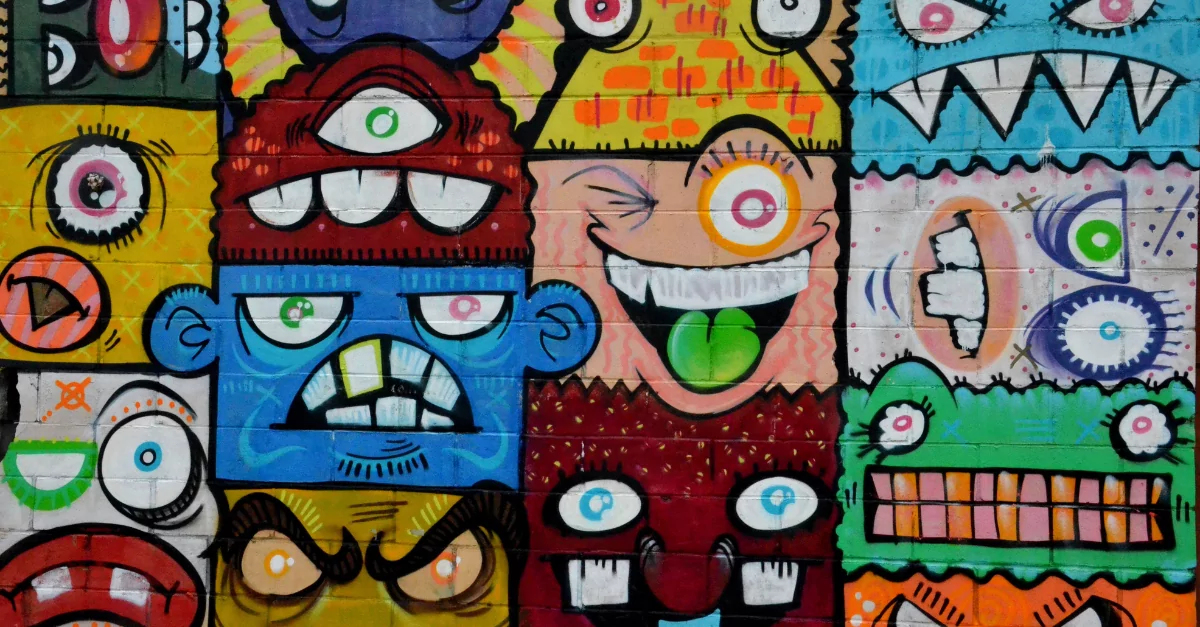
Create a series of paintings that reflect different emotions or moods, such as happiness, sadness, or anger. Example: a serene, pastel-toned painting for calmness, and a chaotic, dark painting for anger.
6. Monochromatic Masterpieces
Choose a single color and create a painting using only various shades of that color. Example: a forest scene in varying shades of green.
7. Cultural Celebrations
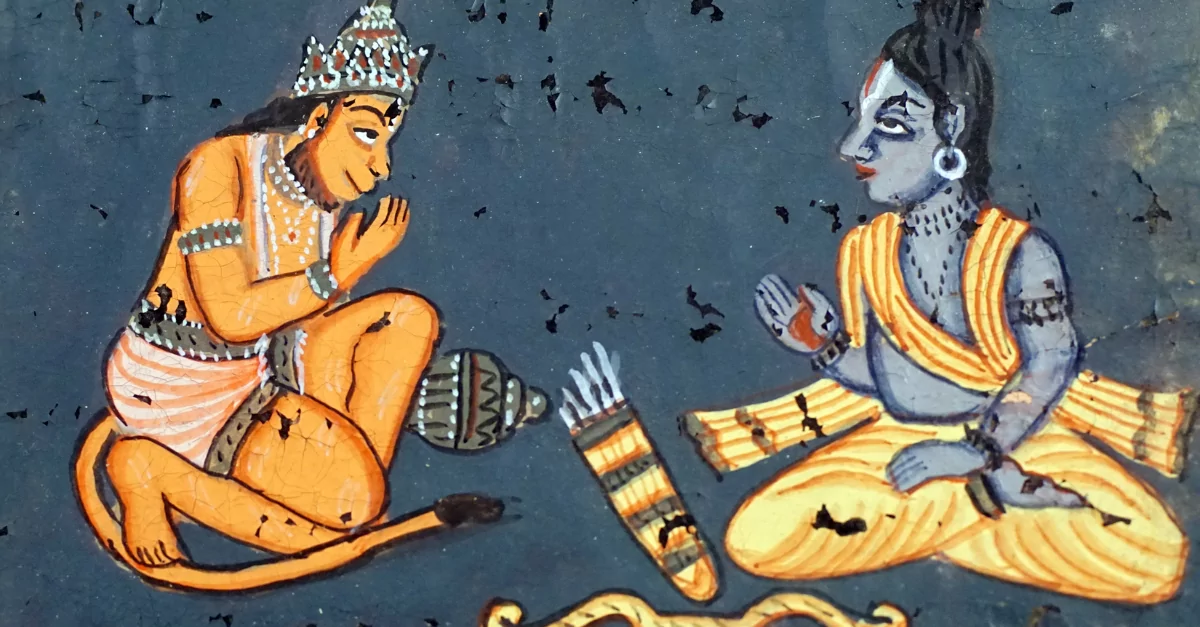
Paint scenes from different cultural festivals and traditions around the world. Example: the colorful and lively atmosphere of the Brazilian Carnival or India’s Holi Festival.
8. Optical Illusions
Create paintings that play with perspective and illusion, making the viewer question what they’re seeing. Example: an Escher-inspired painting with impossible staircases.
9. Microscopic Worlds

Paint scenes inspired by microscopic images of cells, bacteria, or other tiny organisms. Example: a vibrant, intricate painting of plant cells.
10. Paint-by-Music
Listen to your favorite songs or musical pieces and paint what you visualize when you hear the music. Example: a swirling, dynamic painting inspired by Vivaldi’s “Four Seasons.”
11. Art Mashups

Combine elements from two or more different art styles or periods to create a unique hybrid. Example: a Cubist interpretation of Van Gogh’s “Starry Night.”
12. Botanical Portraits
Paint detailed, close-up views of plants, flowers, or trees. Example: a striking, realistic painting of a sunflower in bloom.
13. Recreate Childhood Art
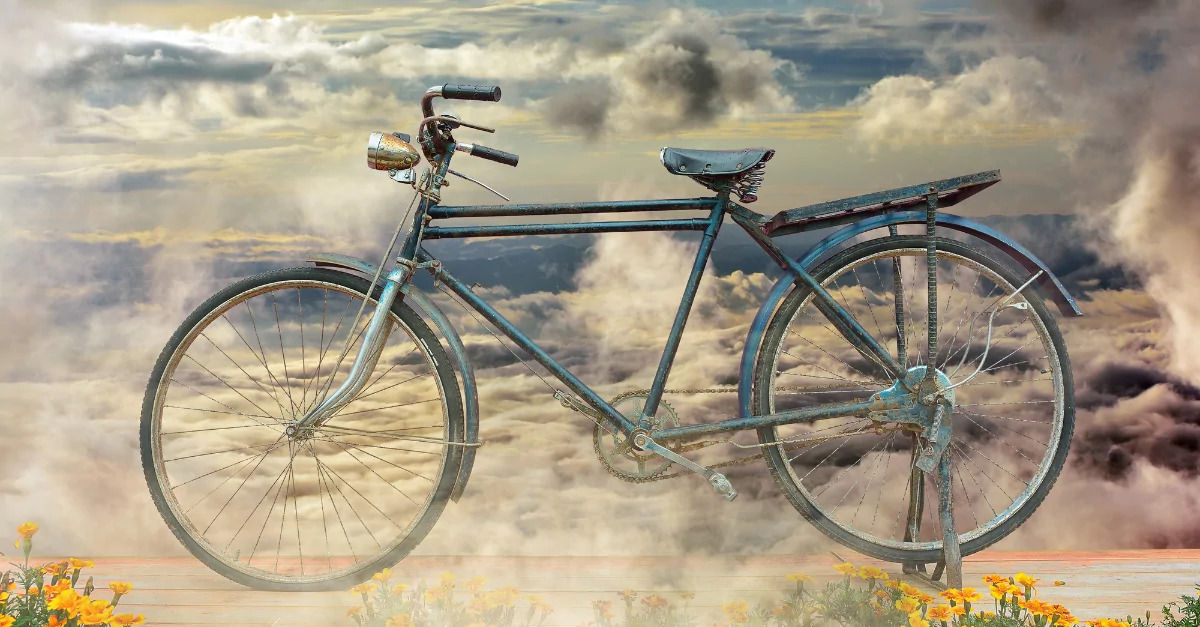
Find old drawings or paintings you did as a child and recreate them with your current skills. Example: transforming a childhood doodle of a house into a polished, professional painting.
14. Mythical Creatures
Paint your own interpretations of mythical creatures from various cultures, such as dragons, mermaids, or chimeras. Example: a majestic, colorful phoenix rising from the ashes.
15. Silhouette Art

Create a painting using only silhouettes of objects, people, or animals. Example: a forest scene with the silhouettes of trees and deer against a vibrant sunset.
16. Collage Painting
Incorporate different materials, like magazine clippings, photographs, or fabric, into your paintings to create a unique, multi-dimensional artwork. Example: a portrait with real clothing as part of the composition.
17. Weather-Inspired Art
Create a series of paintings inspired by different weather phenomena, such as rain, snow, or thunderstorms. Example: a moody, dark painting of a lightning-filled stormy sky.
18. Paint-by-Texture
Focus on creating paintings with interesting and varied textures, using different techniques like impasto, glazing, or scumbling. Example: a rugged, textured mountain landscape.
19. Art Nouveau Revival
Paint in the style of Art Nouveau, characterized by its organic, flowing lines and natural motifs. Example: a painting of a woman surrounded by intricate, stylized flowers and leaves.
20. Cosmic Scenes
Explore the beauty of outer space by creating cosmic scenes featuring planets, galaxies, and nebulas. Use vibrant colors and experiment with blending techniques to create depth and movement. Example: a captivating painting of the Milky Way with a colorful, swirling nebula in the foreground.




